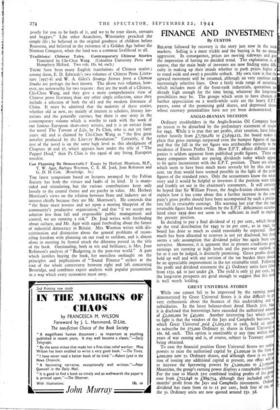Can Planning Be Democratic ? Essays by Herbert Morrison, M.P.,
T. W. Agar, Barbara Wootton, C. E. M. Joad, Joan Robinson and G. D. H. Cole. (Routledge. 6s.) THE latest symposium based on lectures arranged by the Fabian
Society has both the virtues and faults of its kind. It is many- sided and stimulating, but the various contributions keep only loosely to the central theme and are patchy in value. Mr. Herbert Morrison's views on the relation between State and industry are of interest chiefly because they are Mr. Morrison's. He contends that " the State must possess and act upon a moving blueprint of the community's productive organisation," and that "if we accept any solution less than full and responsible public management and control, we are running a risk." Dr. Joad writes with foreboding about culture, and Mr. Agar with equal foreboding about the future of industrial democracy in Britain. Mrs. Wootton writes with dis- crimination and distinction about the general problems of recon ciling freedom with planning on our road to serfdom, and is almost alone in meeting by frontal attack the dilemma posted in the title of the book. Outstanding, both in wit and brilliance, is Mrs. Joan Robinson's analysis of " Budgeting in the post-war world." A gem which justifies buying the book, her merciless onslaught on the principles and implications of " Sound Finance " strikes at the root of the whole controversy between right and left concerning Beveridge, and combines expert analysis with popular presentation in a way which every economist must envy.


























 Previous page
Previous page